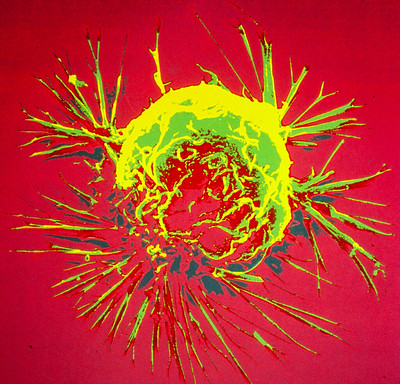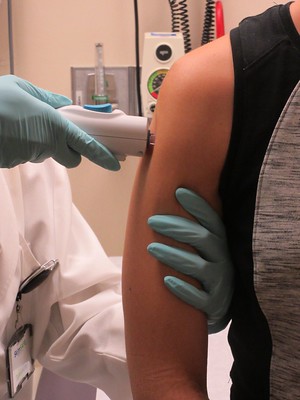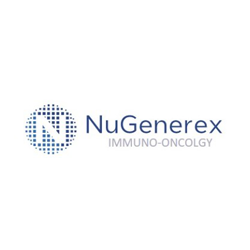 For women with metastatic breast cancer, the prognosis can be grim. And while survival rates have increased in the last few decades, the five-year relative survival among women aged 15-49 is just 36 percent.
For women with metastatic breast cancer, the prognosis can be grim. And while survival rates have increased in the last few decades, the five-year relative survival among women aged 15-49 is just 36 percent.
NuGenerex Immuno-Oncology (formerly Antigen Express) is hoping to increase that number by activating the immune systems of cancer patients.
The science behind the activation technology was discovered by immunologist Robert Humphreys while working at the University of Massachusetts in the early 1990s. He found that small bits of a tumor or a virus could be used to stimulate the immune system to attack other cancerous cells. The company continues to investigate therapeutics for cancer and infectious diseases today.
However, switching from academia to industry was a big change. Funding from Small Business Innovative Research (SBIR) grants from the National Cancer Institute helped the company get off the ground, and helped the team switch to development mode, says Eric von Hofe, President of NuGenerex Immuno-Oncology.
The data collected using SBIR funding along with the credibility associated with receiving the grants led to the company’s acquisition as a publicly traded subsidiary by Generex Biotechnology in 2003.
 In the years since their founding, NuGenerex Immuno-Oncology has worked on therapeutic vaccines for the avian and swine flu, the SARS virus, and HIV, as well as the recent novel coronavirus SARS-CoV-2, all based on the immune system activation technology Humphrey discovered decades ago.
In the years since their founding, NuGenerex Immuno-Oncology has worked on therapeutic vaccines for the avian and swine flu, the SARS virus, and HIV, as well as the recent novel coronavirus SARS-CoV-2, all based on the immune system activation technology Humphrey discovered decades ago.
Researchers now use computer algorithms to search for which parts of a malignant agent to use in their therapies. Then they test those parts against cells from patients who have recovered, whether from a type of cancer or an infectious disease like COVID-19.
The company is now focused on testing a treatment in women with triple negative breast cancer— one of the most aggressive forms—through a collaboration with the pharmaceutical company Merck.
NuGenerex Immuno-Oncology is also in the process of striking out on their own as a publicly traded company, says von Hofe, although they will still remain majority-owned by Generex.
While these developments will fund NuGenerex Immuno-Oncology’s endeavors now, von Hofe says it was early SBIR grants that got them to this point, and underscores the important role the grants serve to build new small businesses.







